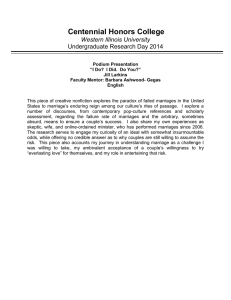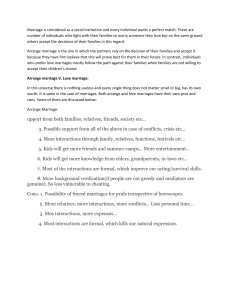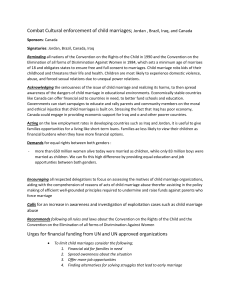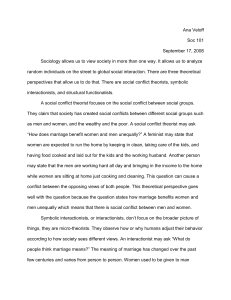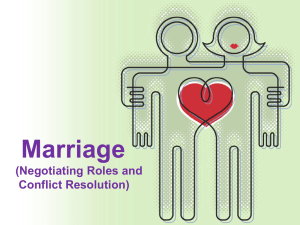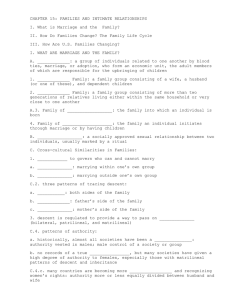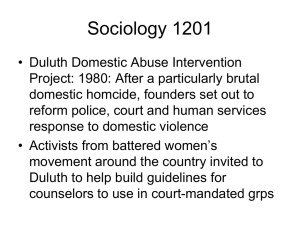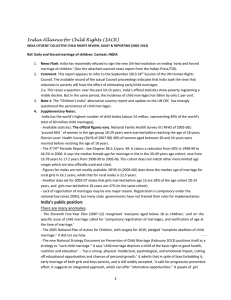GermanyCSW - School of Liberal Arts
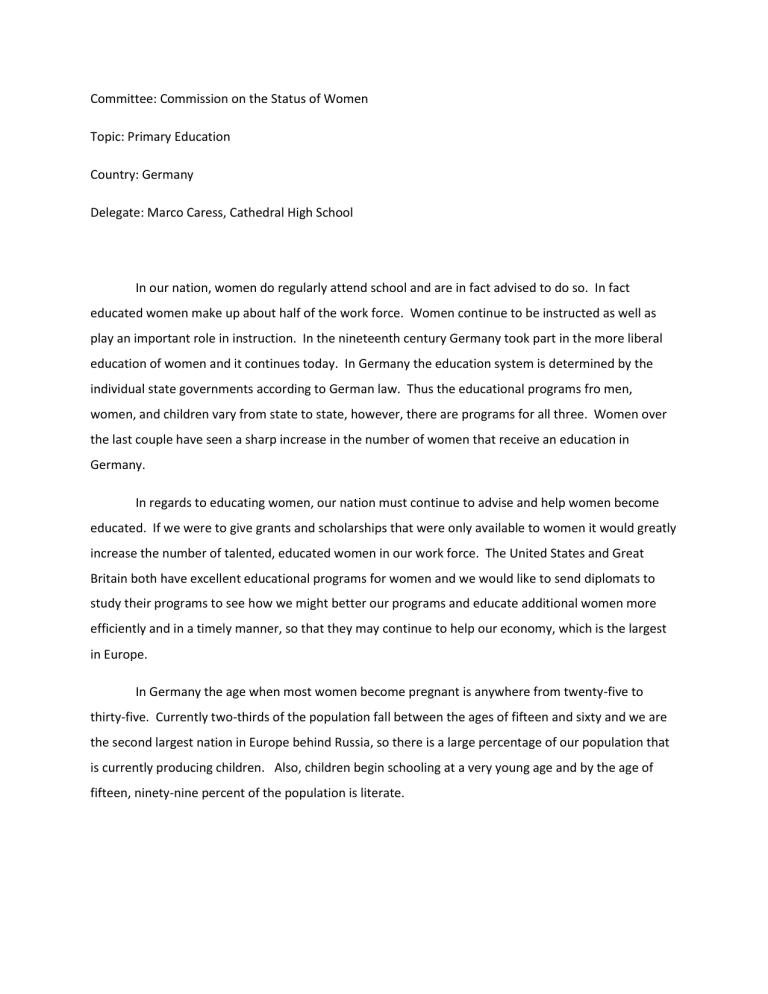
Committee: Commission on the Status of Women
Topic: Primary Education
Country: Germany
Delegate: Marco Caress, Cathedral High School
In our nation, women do regularly attend school and are in fact advised to do so. In fact educated women make up about half of the work force. Women continue to be instructed as well as play an important role in instruction. In the nineteenth century Germany took part in the more liberal education of women and it continues today. In Germany the education system is determined by the individual state governments according to German law. Thus the educational programs fro men, women, and children vary from state to state, however, there are programs for all three. Women over the last couple have seen a sharp increase in the number of women that receive an education in
Germany.
In regards to educating women, our nation must continue to advise and help women become educated. If we were to give grants and scholarships that were only available to women it would greatly increase the number of talented, educated women in our work force. The United States and Great
Britain both have excellent educational programs for women and we would like to send diplomats to study their programs to see how we might better our programs and educate additional women more efficiently and in a timely manner, so that they may continue to help our economy, which is the largest in Europe.
In Germany the age when most women become pregnant is anywhere from twenty-five to thirty-five. Currently two-thirds of the population fall between the ages of fifteen and sixty and we are the second largest nation in Europe behind Russia, so there is a large percentage of our population that is currently producing children. Also, children begin schooling at a very young age and by the age of fifteen, ninety-nine percent of the population is literate.
In Germany women can be forced into marriages by their parents or relatives. Germany is not the only state in which this is happening; it is a global issue which prevents women from having basic freedom in marriage. This freedom is outlined in Article 16 of the UN’s own
Universal Declaration of Human Rights which states that “Marriage shall only be entered into with the free and full consent of the intending spouses”. In Germany this is generally a problem in Turkish immigrant communities who’s culture also allows for the “honor killing” of a spouse who is not faithful. This is a major problem that has resulted in 55 reported killings since 1995 and many cases of domestic violence in Germany alone.
Currently this is an issue in our own state where forced marriages are allowed.
Chancellor Merkel has spoken out against the injustices caused by the allowance of forced marriage in German law. In many Middle Eastern states like Turkey and Saudi Arabia this also occurs among the many other culture issues of the lack of women’s rights in this region. It is illegal according to the Universal Declaration of Human Rights and yet it is still allowed.
This is why Germany must take a stand against these injustices and we propose a resolution to provide some funding in the countries in need to women’s rights groups. In order to provide for relief and shelter for women abused from forced marriage. We should provide money for international women’s rights groups for the purpose of helping these women which could allow for more freedom. We must first help those states like Germany who allow forced marriage but still hold women’s freedom in high esteem.
CSW

